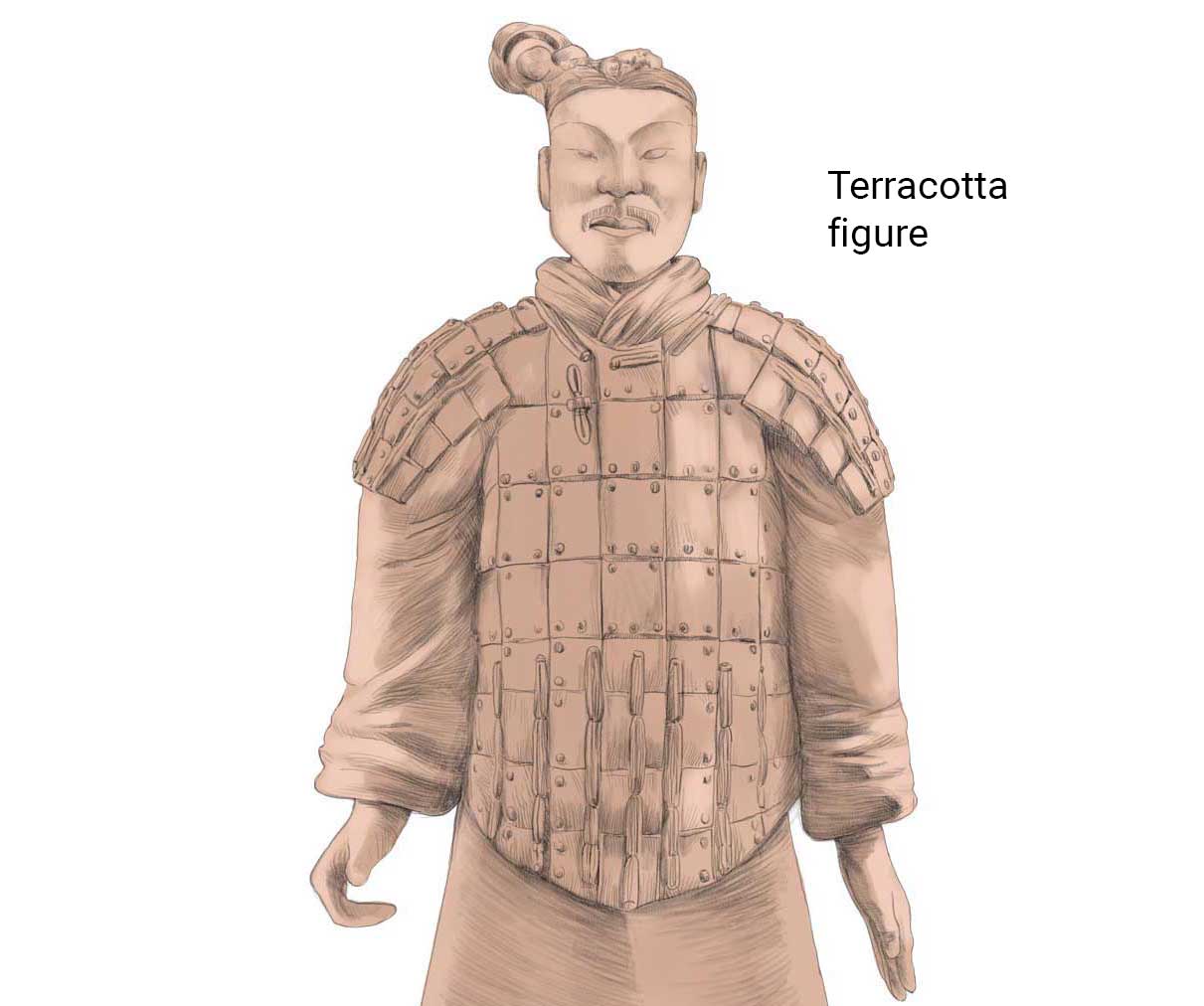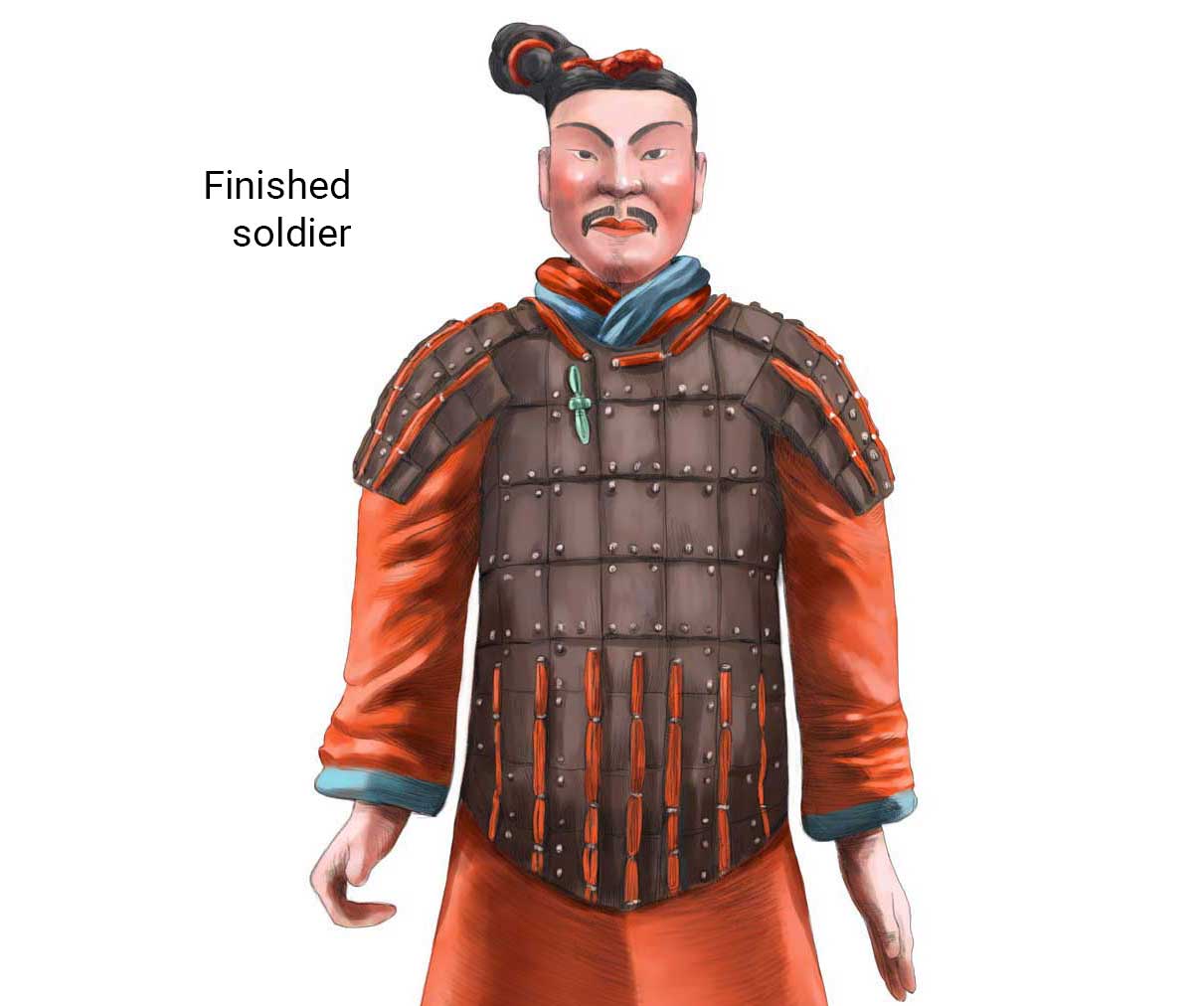Cracking the enigma
In 1974 local farmers in Xian unearthed the 2,000-year-old Terracotta Army. Here we look at how the humble clay was moulded into such fine figures
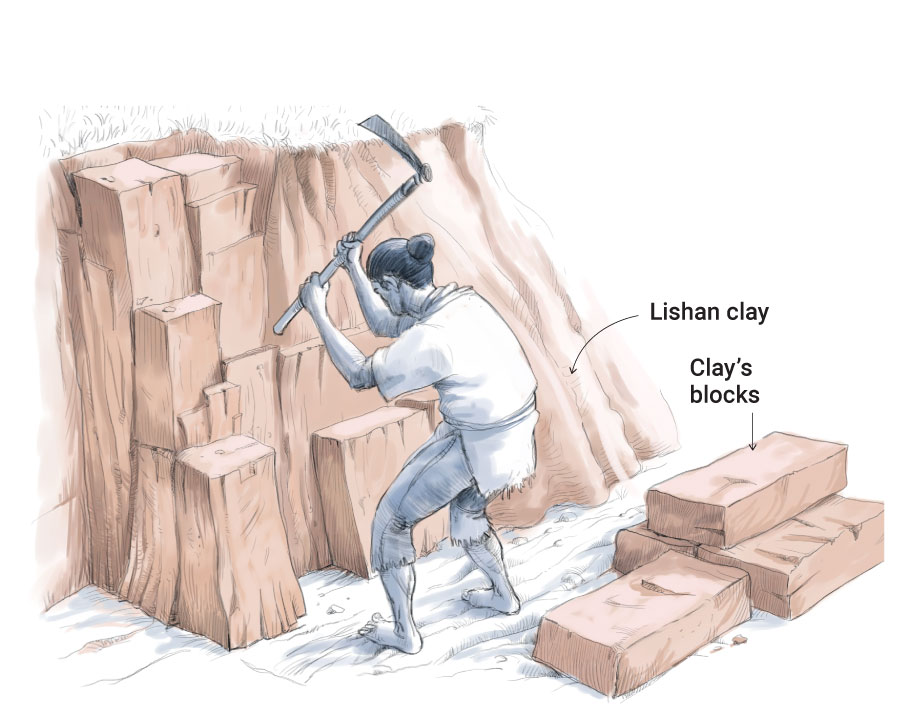
Extraction and preparation of materials
01Thousands of workers were used to extract clay in rough blocks from Lishan
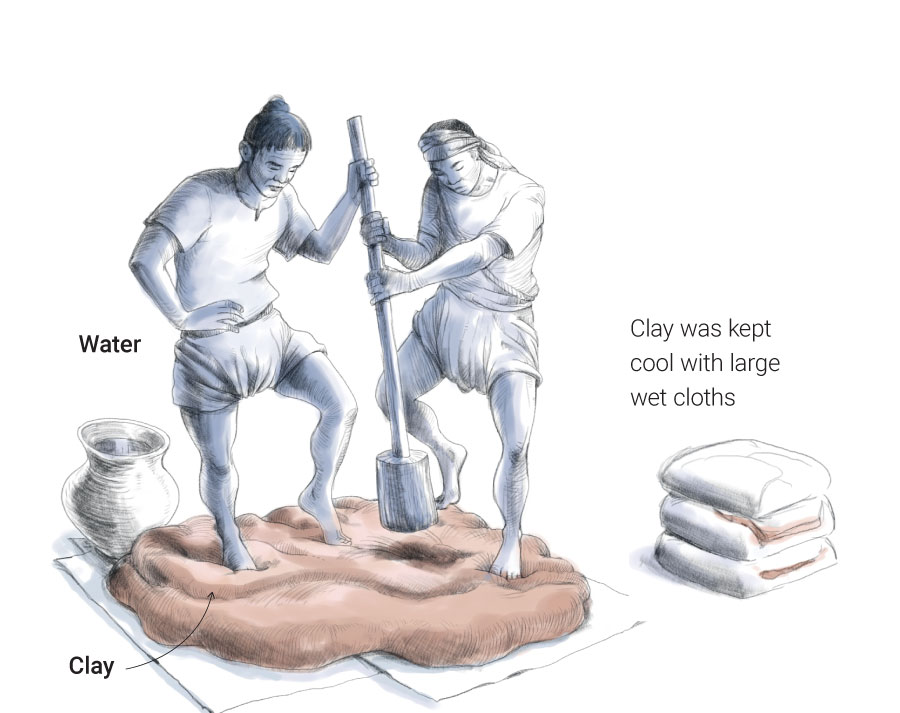
Extraction and preparation of materials
02Blocks were kneaded with water, and mixed with quartz sand, mica and feldspar
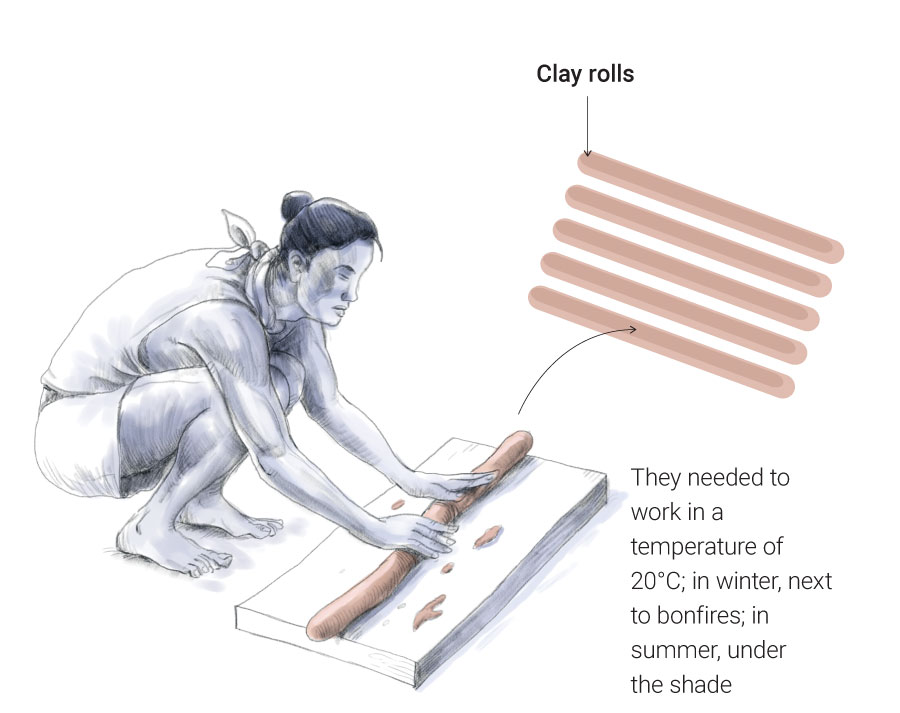
Extraction and preparation of materials
03Craftsmen kneaded the clay into rolls that would be used as moulds for the figures
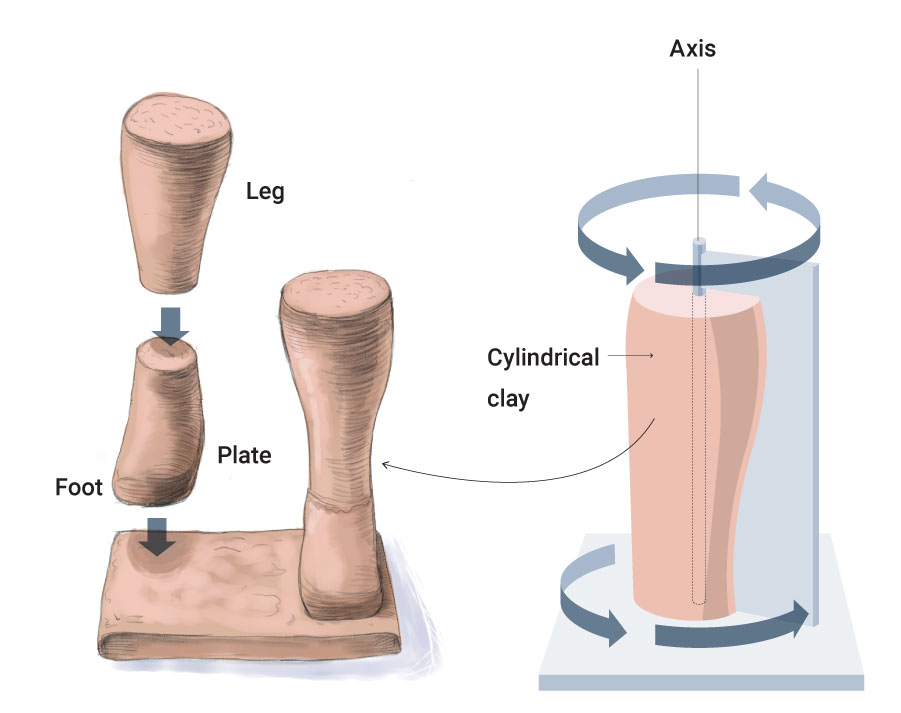
Figure modelling
04They started with the base by modelling the legs in different sections, a lathe was used to make prefabricated legs in sections
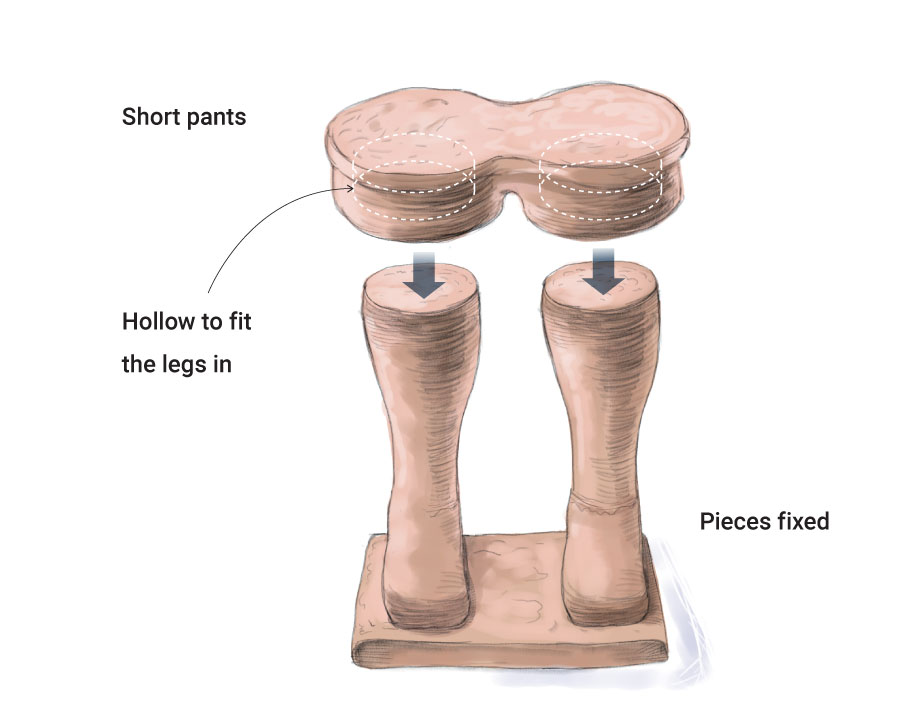
Figure modelling
05Prefabricated sections of the breeches were added to the legs

Figure modelling
06The rest of the breeches were made by coiling strips of clay upwards. In order to make the clay strips tight and strong, artisans would put a piece of sackcloth inside as an underlay. They would then pound it until the shape and size was right
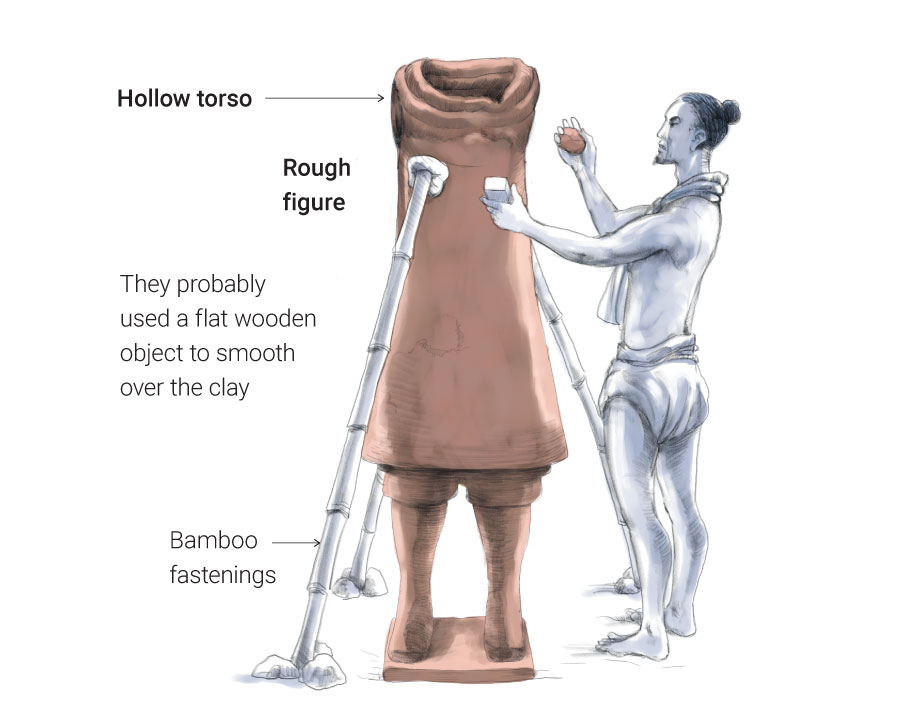
Figure modelling
07Torsos were roughly shaped by hand. During the moulding, the clay must remain wet to maintain its adhesive quality and plasticity
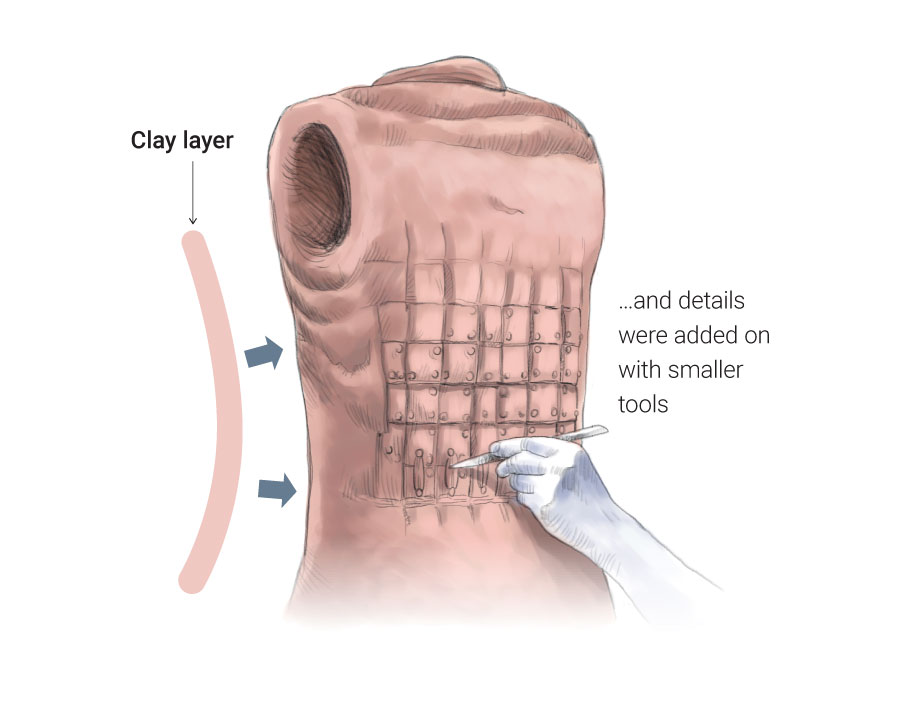
Figure modelling
08New clay layers were added over the body…
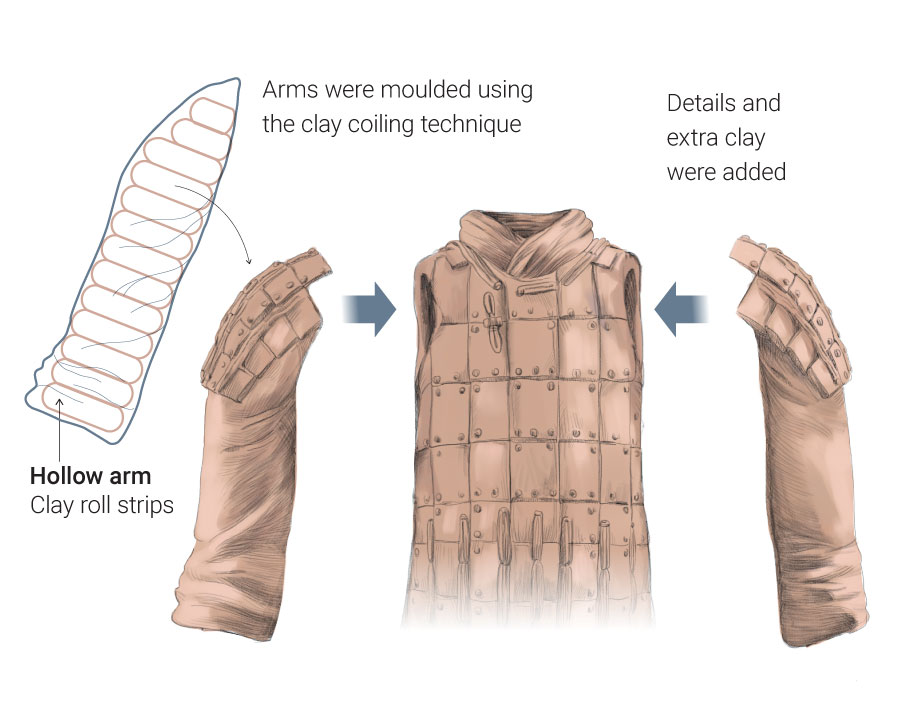
Figure modelling
09After the torso had been dried in the shade, artisans would attach the hollow arms to the sockets
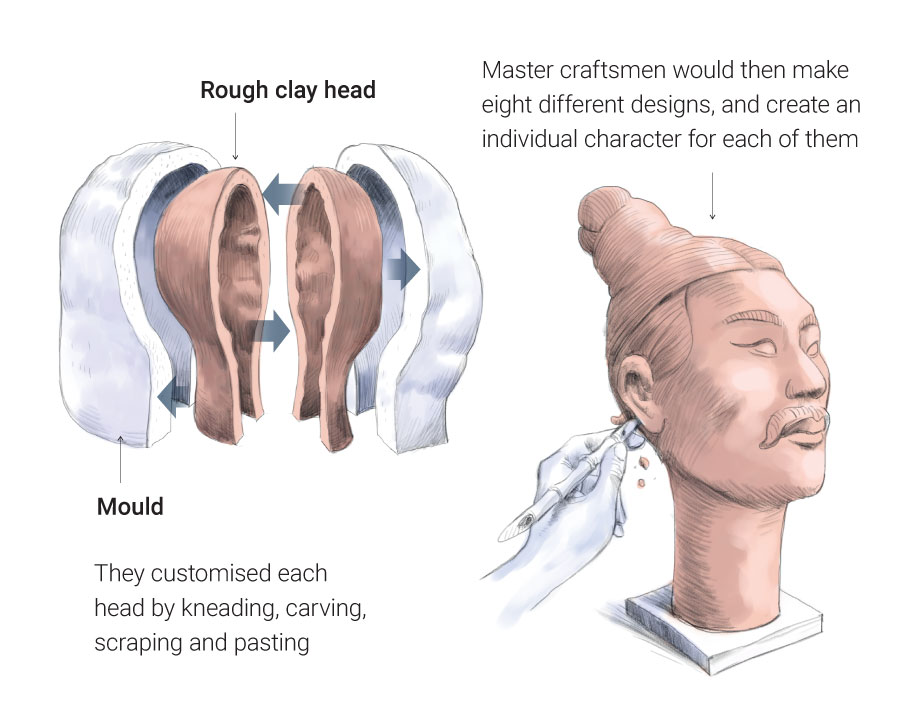
Figure modelling
10Artisans would mould a basic head shape for mass production
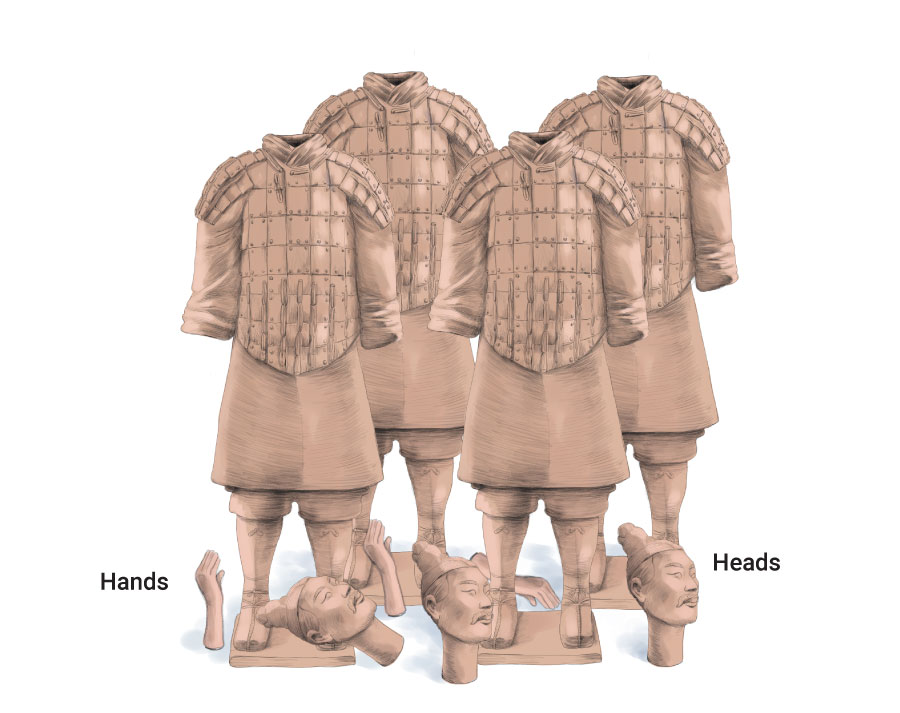
Kilning process
11Bodies, heads and hands were dried in the shade for at least 24 hours
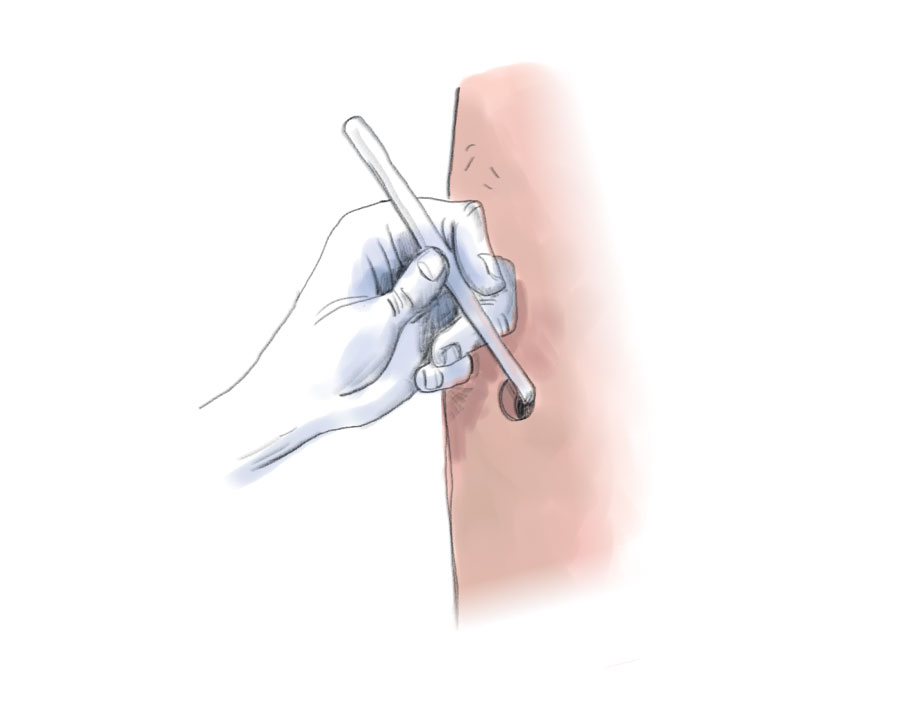
Kilning process
12Before baking in the kiln, or oven, one or more holes were made to allow ventilation and prevent the figure from breaking
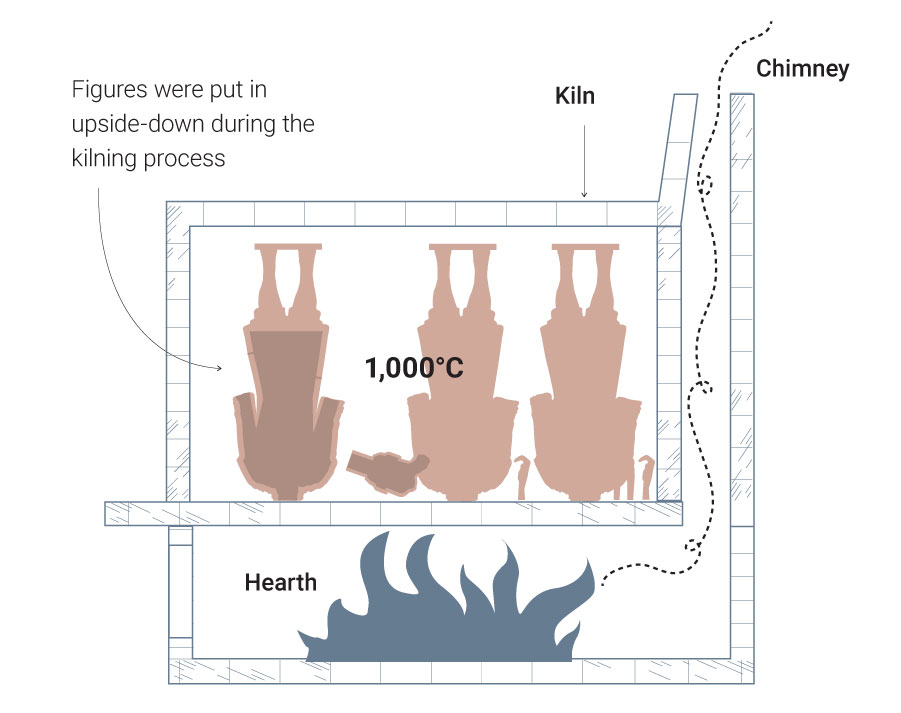
Kilning process
13Although we don't know much about the kiln, research shows the statues were definitely fired in a kiln
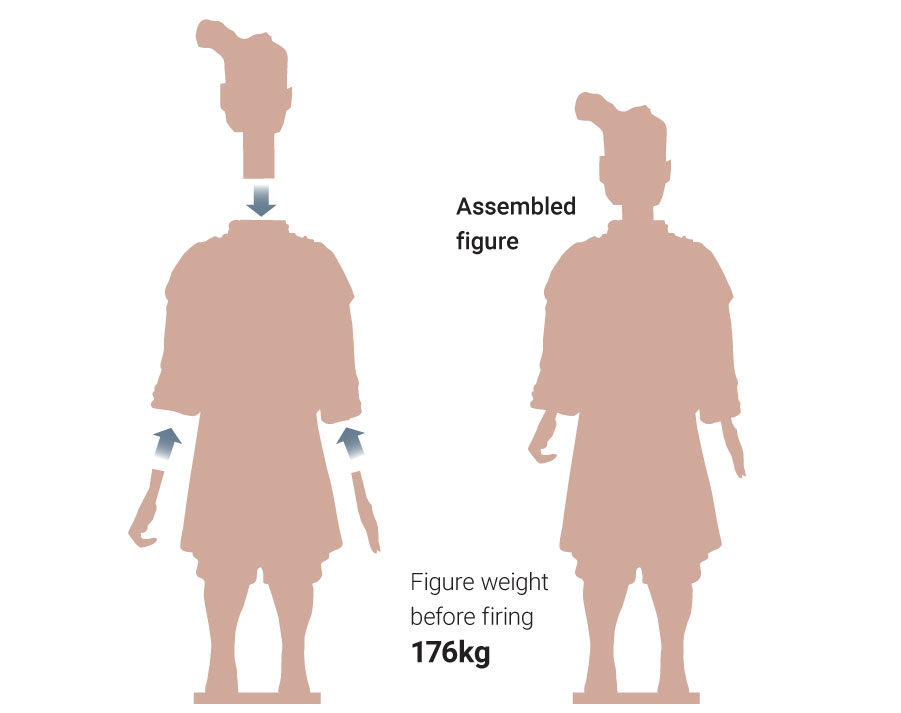
Kilning process
1412-24 hours after the process, the heads and hands would then be assembled
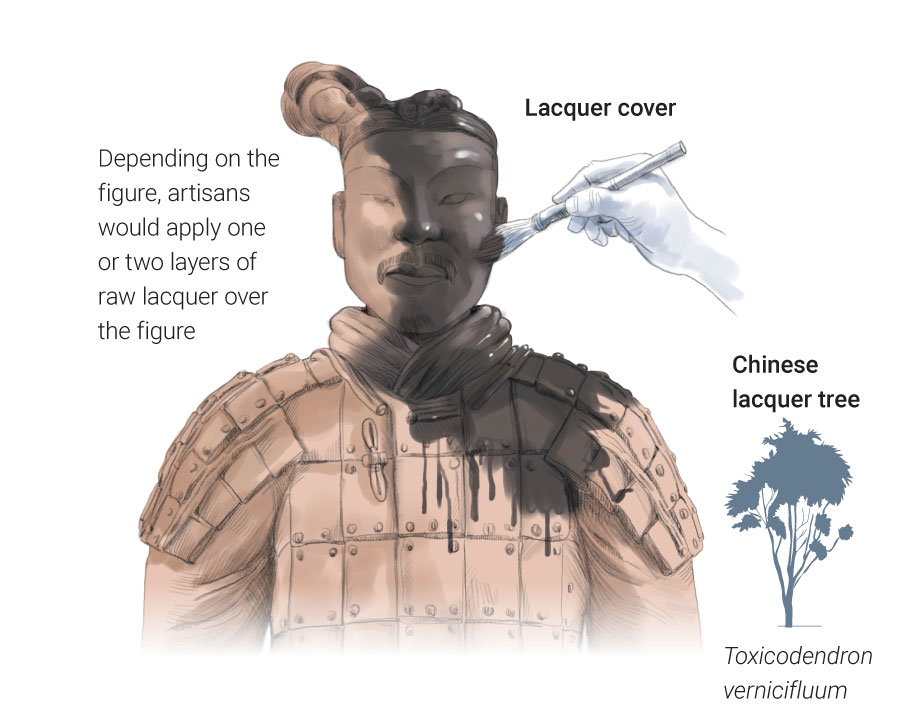
Colouring
15To cover the whole figure, they would have to extract lacquer from 25 trees
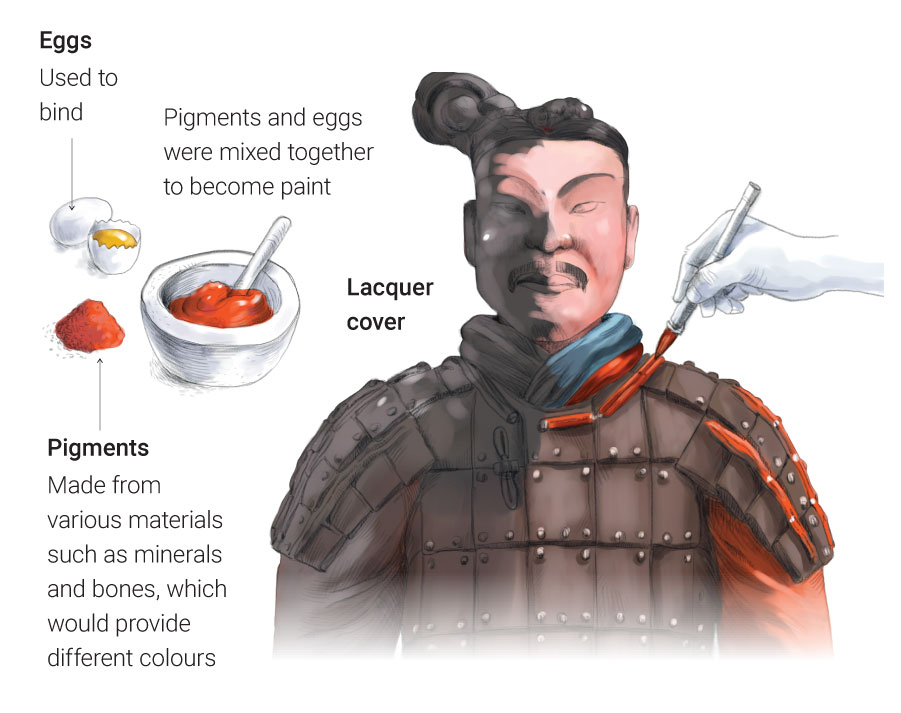
Colouring
16Painters would colour over the lacquer layer, and then the terracotta warrior would be finished and ready for the mausoleum
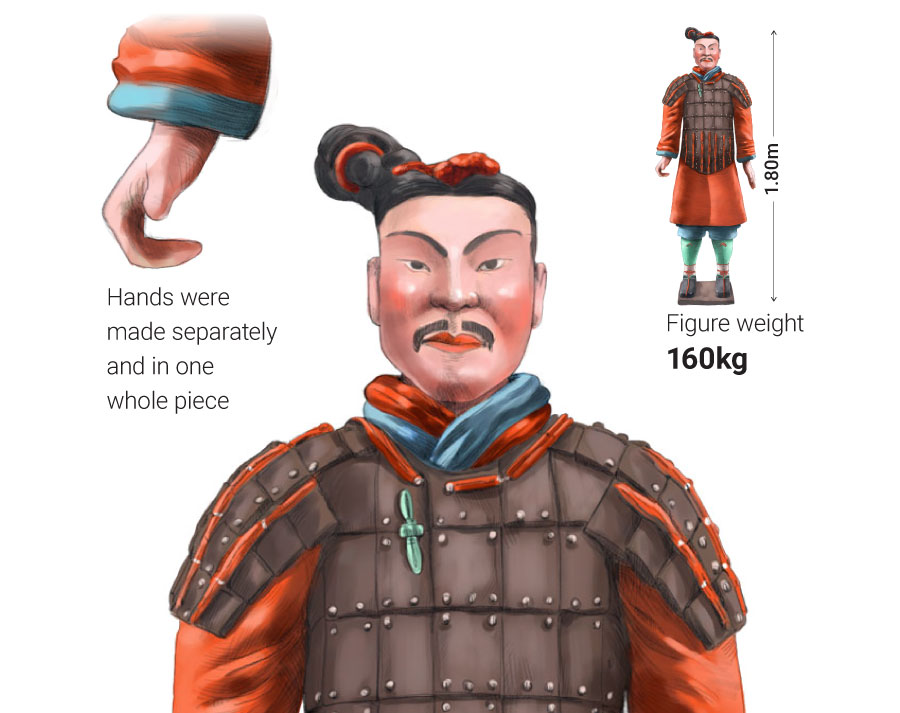
Figure completed
17Appearance of a figure after it has been completed
-
❯
-
❮
